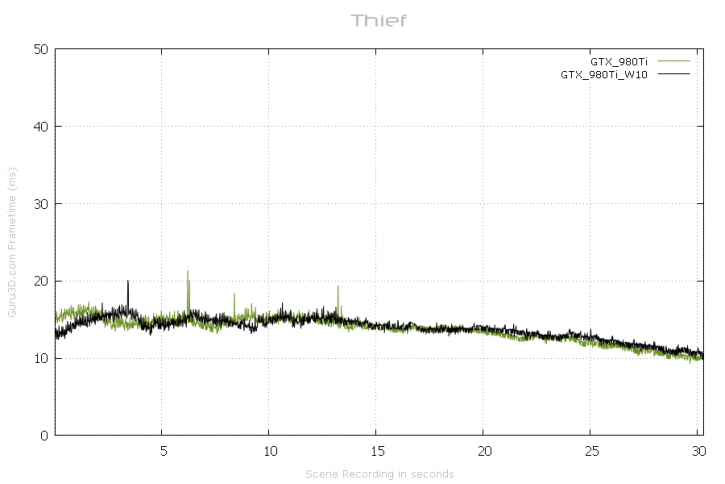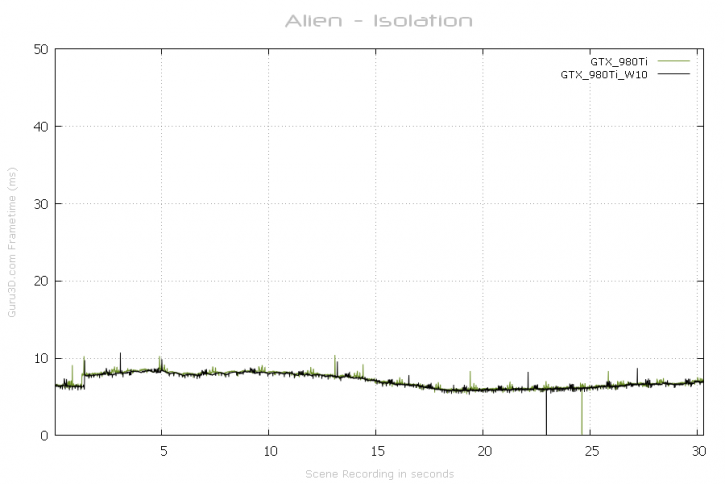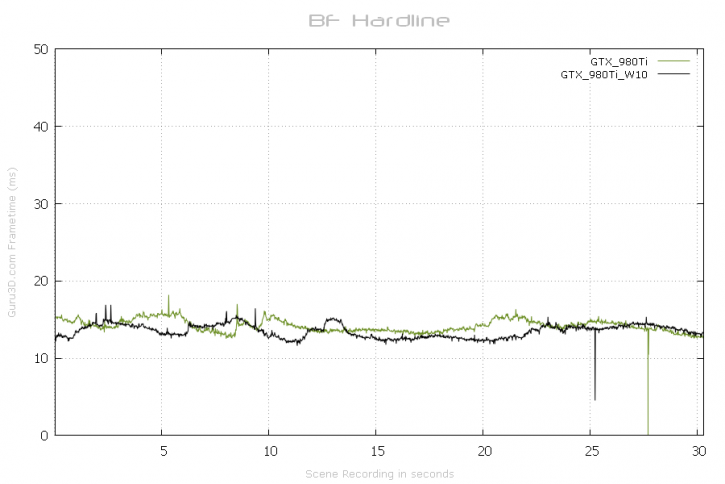GeForce GTX 980 Ti Benchmarks FCAT
GeForce GTX 980 Ti FCAT results
Now as the results below show, there hardly is a difference. Windows 10 from the ground up is Windows 8.1 in another jacket. Only once DX12 games will hit the street you'll be able to see some real differences in terms of scene complexity etc.
With a benchmark technology called FCAT on the following few pages, we will look into Frame Experience Analysis. Basically with the charts shown we are trying to show you graphics anomalies like stutters and glitches in a plotted chart. Lately there has been a new measurement introduced, latency measurements. Basically it is the opposite of FPS.
- FPS mostly measures performance, the number of frames rendered per passing second.
- Frametime AKA Frame Experience recordings mostly measures and exposes anomalies - here we look at how long it takes to render one frame. Measure that chronologically and you can see anomalies like peaks and dips in a plotted chart, indicating something could be off.
| Frame time in milliseconds |
FPS |
| 8.3 | 120 |
| 15 | 66 |
| 20 | 50 |
| 25 | 40 |
| 30 | 33 |
| 50 | 20 |
| 70 | 14 |
We have a detailed article (read here) on the new FCAT methodology used, and it also explains whay we do not use FRAPS anymore.
Frametime - Basically the time it takes to render one frame can be monitored and tagged with a number, this is latency. One frame can take say 17 ms. Higher latency can indicate a slow framerate, and weird latency spikes indicate a stutter, jitter, twitches; basically anomalies that are visible on your monitor.
What Do These Measurements Show?
Basically, what these measurements show are anomalies like small glitches and stutters that you can sometimes (and please do read that well, sometimes) see on screen. Below I'd like to run through a couple of titles with you. Bear in mind that Average FPS matters more than frametime measurements. It's just an additional page or two of information that from now on we'll be serving you.
Frame Experience Analysis
But the answer the question, sure we can run some FCAT benchmarks, see below. This one is for the true Gurus and latency afficinado's of course. If you like to learn what FCAT frametime analysis is, have a peek at this article.





